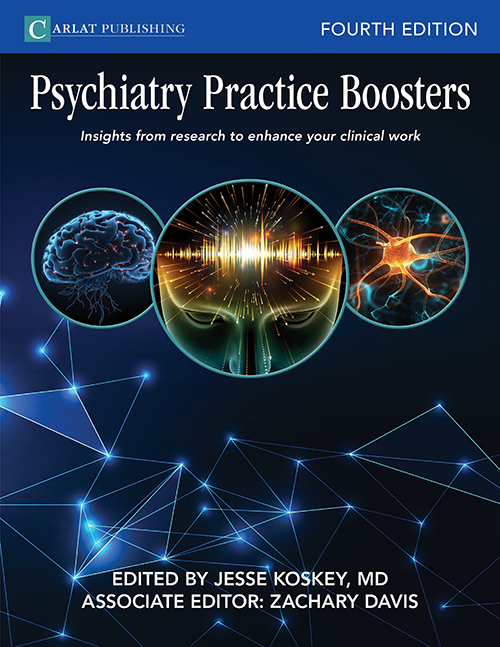Risperdal not Effective for Anorexia Nervosa
Anorexia nervosa, defined as an in- tense fear of gaining weight and a refusal to maintain one’s weight above 85% of expected body weight, is notoriously difficult to treat. clinical trials of both antidepressants and the antipsychotic olanzapine (Zyprexa) have yielded disap- pointing results, with no clear benefit of medications over placebo for the core symptoms of anorexia. Nonetheless, we still often try medications in anorexia, if only to treat associated symptoms such as depression, anxiety, or irrational thinking. risperidone (risperdal) is on the short list of medications often attempted in this population, but until now there was no controlled study to evaluate its effective- ness.
In a study conducted in the eating disorders program at children’s hospital colorado in denver, 40 adolescent females with anorexia nervosa were randomly assigned to either risperidone (n = 18) or placebo (n = 22). patients began as either inpatients or day patients, and were transitioned to care as usual over time. They received the multidisciplinary care typical in such programs, with an emphasis on parents taking charge of meal planning and supervision.
Patients who were assigned to risper- idone started with 0.5 mg/day, and were titrated up in weekly 0.5 mg increments until they left the study, either because of a response (defined as reaching the target weight of 90% of ideal body weight for one month), a worsening, or no response despite being on the maximum dose of 4 mg for four weeks. The mean risperidone dose was 2.5 mg, and the mean duration of treatment was nine weeks. patients who were already taking antidepressants were allowed to continue them, but no other medications were permitted.
At study endpoint, 33% of the risperi- done group reached the target weight,vs. 45% of the placebo group (not a sta- tistically significant difference). patients taking risperidone did show significant improvements relative to placebo in the eating disorder inventory 2 drive to Thinness scale over the first seven weeks, but this difference disappeared by study endpoint. risperdal was well tolerated— the only difference in side effects was elevated prolactin in the drug group. The study was limited by difficulties recruit- ing enough patients into the study to achieve high statistical power—which is an occupational hazard common to all anorexia studies (hagman J et al, JAACAP 2011;50:915–924).
CCPR’s Take: This is another disap- pointing result in the world of anorexia research. While there was a signal that risperidone might ease some of the disor- dered thoughts of anorexia, the antipsy- chotic is probably ineffective for the key outcome of weight restoration.
Newsletters
Please see our Terms and Conditions, Privacy Policy, Subscription Agreement, Use of Cookies, and Hardware/Software Requirements to view our website.
© 2025 Carlat Publishing, LLC and Affiliates, All Rights Reserved.


_-The-Breakthrough-Antipsychotic-That-Could-Change-Everything.jpg?1729528747)



